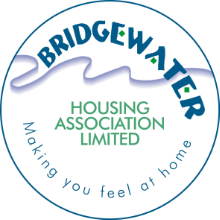Winter Precautions
Cold weather affects all of us, including our relatives, friends and neighbours, and particularly older and vulnerable people in our community.
Try to keep your home reasonably warm day and night. Wearing several layers of thin clothing made with wool, cotton, or fleecy synthetic materials is better than wearing one thick layer of clothes.
If you’re an older or vulnerable person and it does turn really cold, try and eat at least one hot meal a day and sip hot drinks throughout the day. It’s important for you to be as active as possible if you can be. Spreading household chores throughout the day is a good way to stay mobile. Remember to stock up on food and other essentials in case it’s too cold to go to the shops for a few days.
Get a flu jab if your doctor recommends it.
Let us know if you think your heating is not warming up your house enough or if you’re feeling any cold draughts. It’s better to sort these things out now rather than when it gets really cold. Someone in our Technical department will be happy to assist you.
Looking after your home
Burst and frozen pipes can be avoided if some essential precautions are taken. Help to protect your home and your belongings with these simple steps.
If You Are Going On Holiday
If you’re planning to go away for more than a day or two, turn off the stop valve and drain off both hot and cold water systems. Contact our Technical Staff at the office if you are unsure of where this is or what to do. If you leave the house empty for a period, to go on holiday for example, it is a good idea to leave the keys with a relative or neighbour and to inform the Police. You should also tell your Housing Officer at the office when you will be away.
If you live in a block of flats, check with your neighbours before turning off the water in case it affects the water supply to the block.
Heating the Roof Space
In the event of very low temperatures it is a good idea to open the hatch to the roof space, (if you have one). Although this will add slightly to your heating bill it will give additional protection to your water tank and pipes in the roof space.
Before Your House Freezes Up
- Find out where your stop valve is located. This is the stop cock fitted to the pipe that brings water into your home. It’s often located under the kitchen sink, but not always.
- If you have any pipework that you feel should be insulated, let the Association’s technical department know and we will check this for you.
- If you have an external tap, turn off the water supply to it (it should be fitted with its own stop cock) and open the tap so that any water can drain away.
If You Get A Burst Pipe
- Turn off the water at the stop valve
- Switch off the electricity at the mains
- Switch off any water heaters
- Switch off central heating systems
- Open all taps to sinks and bath to let the water drain away
- If possible, collect water in the bath for flushing the toilet and for washing
- Call our office during working hours on 0141 812 2237 or the emergency call out number 0845 600 8624 when the office is closed.
- Warn neighbours who might be affected by leaks.
If You Get Frozen Up
- Turn off the water at the stop valve
- Open all taps to sinks and bath
- If possible, collect water in the bath for flushing the toilet and for washing
- Raise the temperature in the house gradually using your central heating system
Central Heating
It is a good idea to leave your heating system on, even when you are out or away on holiday. Leave the boiler on at a very low setting, and turn the radiator valves to the ‘frost’ setting. Again, if you are unsure about this contact our Technical Department.
Are You Insured?
The next fire, flood or accident could happen to you. Have you insured your furniture and household contents? Check with your own insurer that you are covered for this type of eventuality. Tenants with no household insurance could be facing real financial disaster so please make sure that you have adequate insurance.
Remember
Whether you are in the house or away in holiday, you are responsible for it and may have to pay for damage done by frost if it could have been avoided.
